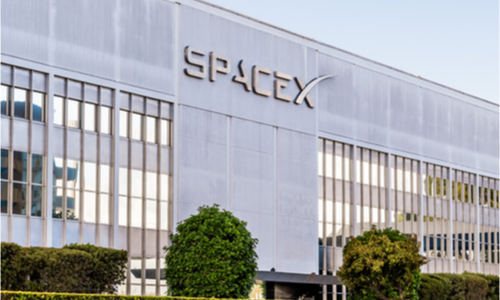
Federal Communications Commission (FCC) Chair Jessica Rosenworcel has called for increased competition to SpaceX’s Starlink satellite internet service, emphasizing the need for more players in the space-based internet market. Speaking at a conference on Wednesday, Rosenworcel highlighted the dominant role Starlink plays in satellite internet and expressed concerns about the lack of competition.
According to Reuters, Rosenworcel noted that Starlink, the satellite internet constellation owned by Elon Musk’s SpaceX, currently controls almost two-thirds of all active satellites in orbit. Since 2018, Starlink has launched approximately 7,000 satellites. “Starlink has almost two-thirds of the satellites that are in space right now and has a very high portion of internet traffic,” Rosenworcel stated. She added that monopolies are not beneficial for the economy and urged for more innovation and competition in space. “Our economy doesn’t benefit from monopolies. So we’ve got to invite many more space actors in, many more companies that can develop constellations and innovations in space.”
Read more: Starlink Refuses to Block X in Brazil Amid Regulatory Dispute
Musk, who is known for regularly sharing updates about his companies on social media, recently tweeted that Starlink is on track to deliver over 90% of all space-based internet traffic by next year. The company is currently the only high-bandwidth satellite internet provider offering global coverage.
Per Reuters, Rosenworcel pointed out that competition is crucial in every communications market, as it leads to lower prices and greater innovation. She emphasized that the space economy should not be an exception, stating, “Every communications market that has competition is strong, we see lower prices and more innovation, and honestly, space should be no exception.”
In response to the growing interest in space-based communication networks, Rosenworcel said the FCC is working to assist new entrants in navigating the regulatory process. “Outreach has really become a part of our ongoing effort here, because we know there’s going to be a whole bunch of new players in the space economy,” she said.
This push for competition comes after the FCC’s 2022 decision to deny Starlink $885.5 million in subsidies intended for rural broadband expansion. The funding was part of a program to provide high-speed internet service to 642,000 rural homes and businesses across 35 states. However, the FCC withdrew the subsidy in August 2022, citing Starlink’s failure to meet key program requirements. According to Reuters, the decision was reaffirmed last year after SpaceX challenged the ruling, with the FCC arguing that Starlink had not demonstrated its ability to deliver the promised service.
Source: Reuters
Featured News
Big Tech Braces for Potential Changes Under a Second Trump Presidency
Nov 6, 2024 by
CPI
Trump’s Potential Shift in US Antitrust Policy Raises Questions for Big Tech and Mergers
Nov 6, 2024 by
CPI
EU Set to Fine Apple in First Major Enforcement of Digital Markets Act
Nov 5, 2024 by
CPI
Six Indicted in Federal Bid-Rigging Schemes Involving Government IT Contracts
Nov 5, 2024 by
CPI
Ireland Secures First €3 Billion Apple Tax Payment, Boosting Exchequer Funds
Nov 5, 2024 by
CPI
Antitrust Mix by CPI
Antitrust Chronicle® – Remedies Revisited
Oct 30, 2024 by
CPI
Fixing the Fix: Updating Policy on Merger Remedies
Oct 30, 2024 by
CPI
Methodology Matters: The 2017 FTC Remedies Study
Oct 30, 2024 by
CPI
U.S. v. AT&T: Five Lessons for Vertical Merger Enforcement
Oct 30, 2024 by
CPI
The Search for Antitrust Remedies in Tech Leads Beyond Antitrust
Oct 30, 2024 by
CPI